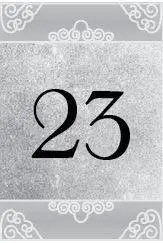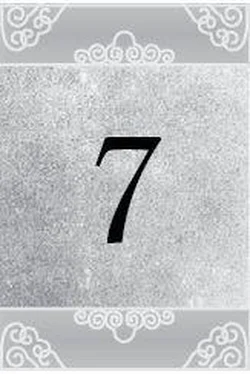The cell phone in the box rang. Sam picked it up and said, “Hello.”
“Hello, Mr. Fargo. Since you received this telephone, then you also must have the picture and know we have your wife. She’s very beautiful, and seems to be very intelligent too. You must miss her terribly.”
“What is it that you want terribly?”
“Right to the point. All right. You have recovered three hidden portions of the loot that Attila the Hun stole from European cities when he conquered them in the fifth century. You have one found in Italy near Mantua, one from Châlons-en-Champagne, France, and one from the shore of the Danube in Hungary.”
“I don’t—”
“Don’t interrupt and don’t argue. I know that you have taken them, and now you will give them to me. I want those finds.”
“All three have been turned over to the national archives of those countries,” Sam said. “There are treaties and laws that prevent people from—”
“I told you not to argue with me. Do I sound to you like someone who cares about treaties between foreign politicians? Getting the ransom is your problem. As soon as you have the three hoards in your possession, call me by pressing the programmed number on your new phone that says Remi.”
“What happens if I can’t get the three treasures?”
“Why make yourself afraid and unhappy? I hope I don’t need to think of something terrible to do. I don’t want to promise you some horrible last videotape of your wife if you fail. Succeed. I would rather have you confident and strong, thinking only about collecting my gold and delivering it.”
“Even if I can do this, it will take some time.”
“Time is not weighing on me. If you don’t want her back for a week, take a week. A month? Take a month. Take six months.”
“Where can I—” and Sam realized that he had prolonged the conversation as long as he cold. The kidnapper had hung up. He turned off the new cell phone, took it to the bathroom and wrapped it in a towel, closed the door, and went back to his own telephone. “Selma?”
“I’m here,” she said. “I recorded that. But I didn’t learn anything except that he’s Russian, speaks English well, and isn’t afraid.”
Sam said, “How about you, Consulate? Do you have anything?”
The voice was calm, quiet, and American-accented—not Hagar, but someone who was a lot like him. “We have determined that a Russian trading partner of Arpad Bako is a man named Sergei Poliakoff. The Russian police are putting together a file for us.”
“Where does he live?”
“Nizhny Novgorod. He has an import-export business, and an estate west of the city. The Russians haven’t tipped us on what they know ahead of their report, but the officer who passed me the information implied that he’s a pretty unsavory character. He has people in a lot of places, possibly even the U.S.”
“Thanks. I’ll have to get started on this right away. I’m going to leave both cell phones in my room. If you can, please get somebody to move the kidnapper’s phone around a bit—drive it around, ship it to friends in Italy or France. He’ll be tracking the GPS to find out where I am.”
“But where will you be? You can’t go off alone in this country. You don’t even speak the language. You can’t operate without the Russian police and that means dealing through us. I want you to promise me that you won’t try to do anything like that.” The man, whose name was Owens, stopped talking and listened. There was nobody on the line.
He switched to an internal line. “We’re about to lose track of Fargo. He’s left the hotel. He’ll probably turn up near Nizhny Novgorod in a week or two. He left our cell phone and the kidnapper’s cell in his room. Send somebody to pick up both. Then send the kidnapper’s phone on a vacation to Rome, Paris, and Budapest. It’ll keep the poor guy’s wife alive for a while.”

NIZHNY NOVGOROD, RUSSIA
Sam is coming. Sam will come for me no matter what. He’s coming for me already. He will have found something to trace.
Remi lay in bed even though she suspected it was late morning. She had read somewhere that experimenters living in caves without sunlight or clocks would gradually lengthen their sleep cycles to a twenty-six hour day. She heard the quiet knock of the girl who would be bringing her breakfast. She was sensitive to Remi’s feelings. She knocked even though Remi was locked in and she had the key.
The girl’s name was Sasha—a boy’s name, usually, but maybe it was a nickname, or even a name that she’d assumed because she worked for a criminal and didn’t want to be identified. She was about eighteen, slim and blond, with pale green eyes. She had come in about five times now. Each time she entered, Remi would make sure to talk to her.
Remi said, “Good morning, Sasha. What a nice breakfast you’ve brought me. Thank you very much.”
Sasha put the food down on the small table and pulled out the chair for Remi as she always did. The girl never let on during the first few visits that she spoke English, but Remi had tested her. Remi had rattled on in English each visit as though the two were friends, and had planted ideas.
Once she had said she missed being outside and seeing the sun, and, most of all, she missed flowers like the ones that she had seen growing on the estate when she was brought here. The next visit Sasha put a bud vase on her tray with a small yellow rose in it. Remi had expressed great gratitude, and she repeated her thanks just as enthusiastically the next time a flower appeared. Remi liked the strong-brewed Russian tea Sasha brought in a glass with sugar in it. But the second time, she’d decided to sacrifice it. She had said, “It’s too strong for me. Would you like it?” and with a reassuring expression gave the tea to Sasha. Remi said that what she liked best was coffee sweetened with a little honey. The next day, Sasha brought the strong tea as usual and kept it as her own, but she also brought coffee and honey. Sasha sat on the bed with her tea and stayed with Remi while she ate.
Each breakfast included coffee and tea, each lunch had a flower. When Remi talked, she would ask Sasha questions about the world outside. When there was a particularly beautiful purple-and-white tulip, Remi asked where it grew, and Sasha used cups, napkin, plates, and silverware to make a little map of the estate. As she placed the pieces she called them “house . . . garden . . . road . . . stables . . . pasture . . . garage” in English.
With every visit, Remi kept trying to solidify the friendship and learn whatever she could about the house, the grounds, and its occupants. Sasha didn’t volunteer much information. Instead she listened to Remi, took a minute or two to ask herself whether the information could be dangerous, and then invariably devised some way to answer without saying anything that might get her in trouble.
Four days—twelve meals—passed this way. In the end, Remi knew—partly from observation the morning she’d arrived and partly from Sasha—the approximate layout of the house and grounds. She knew that there were twenty men on the estate who were not usually there and that they made Sasha’s work much harder since they required much more cooking, cleaning, laundry, and dishwashing. And they were the sort of men who gave Sasha the creeps.
What Sasha didn’t know was that Remi had slipped a fork up her sleeve the second day. Sasha would never have suspected that Remi had used a hole drilled in the steel bed frame to bend all the tines on the fork but one, that she had a husband who had taught her to pick a lock, and that she had broken one tine all the way off to use as a tension wrench.
Читать дальше













